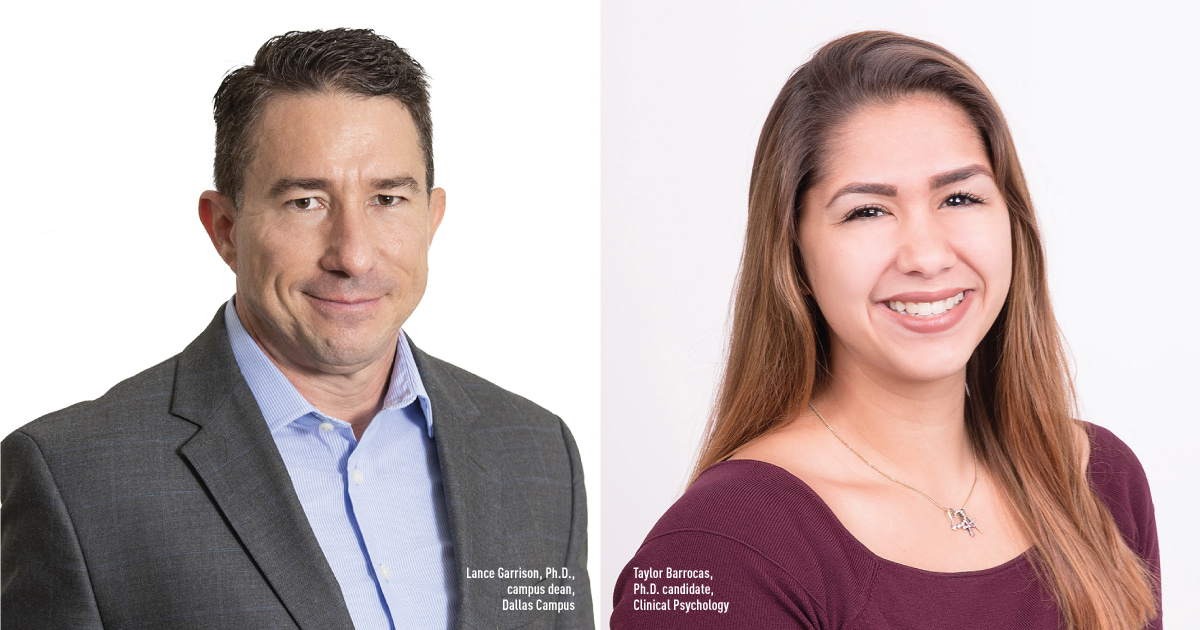While stress over the past two years on first responders and health care workers has been well documented, mental health professionals are recognizing that the trauma extends to those far beyond the front lines. Elected officials, for example, have had to scramble to acquire PPE and other emergency medical supplies for their constituents and to maintain essential services throughout the pandemic. And these challenges have been even more acute in underserved communities.
One organization being impacted is the National Association of Latino Elected and Appointed Officials (NALEO), the largest Latino leadership organization in the country. In response to requests from its members for mental health support, NALEO invited Lance Garrison, Ph.D., campus dean at The Chicago School’s Dallas Campus to present a workshop on stress management at their annual conference in June 2022.
The workshop consisted of two parts. The first outlined their three areas of focus: recognizing stress, understanding the effects of stress on the body, and learning strategies to cope with stress. “People often think about stress in their lives as largely beyond their control,” Dr. Garrison says. “However, a lot of times the stress we encounter in our lives is less about what’s going on around us and more about how we respond to it.”
In the second part of the workshop, participants were invited to develop a self-care plan, beginning with a self-assessment, followed by an outline of new self-care activities along with a schedule to review their progress. They followed this with a deep breathing exercise, which provided an added resource for self-care.
One challenge to fostering mental wellness highlighted by the NALEO presentation is the language barrier between those in the Latino community and health care providers who only speak English. Taylor Barrocas, a third-year Psy.D. candidate in the Clinical Psychology program at The Chicago School, who participated in an online workshop with the NALEO Leadership Fund earlier in the spring, addressed that group in Spanish. Barrocas, raised in a Cuban family in Miami, Florida, says, “I try to do that when it makes people more comfortable.”
Dr. Garrison stresses there is a dire shortage of mental health professionals overall, but the need is particularly urgent in underserved areas. “We just need more psychologists and counselors in the field,” he says. “But one of the real problems is the lack of bilingual psychologists and counselors. Cultural identification can be a real barrier to access for minority populations.”
Barrocas is poised to join the next generation of bilingual clinicians. “I’ve always wanted to help people, and I didn’t know where my help was needed.”
She found her calling by working with the incarcerated, and her education went a long way to shape her aspirations. “I found The Chicago School by luck, but this is the best program for me,” she says, praising the school’s individualized approach to learning and the diversity and inclusivity of the faculty and students.
The success of the NALEO workshop has helped begin to raise the level of consciousness on the impact of stress on health and well-being thus leading to expanding requests for similar workshops. “We are actively partnering with mental health organizations such as the Coalition for Behavioral Healthcare in Collin County, local school districts, and chambers of commerce to bring this important information to our local communities,” Dr. Garrison says.
Learn more about The Chicago School
To learn more about academic programs at The Chicago School, fill out the information below to request more information. You can also apply today through our application portal here.

